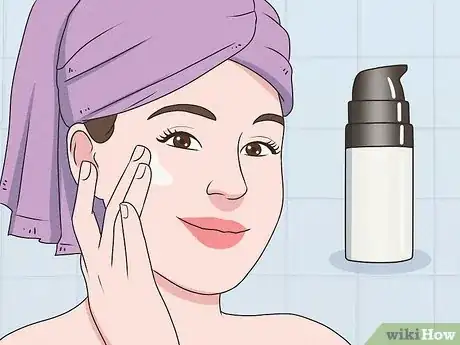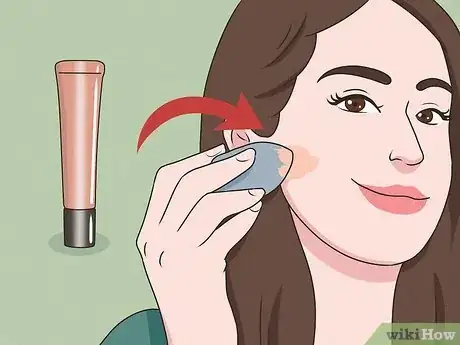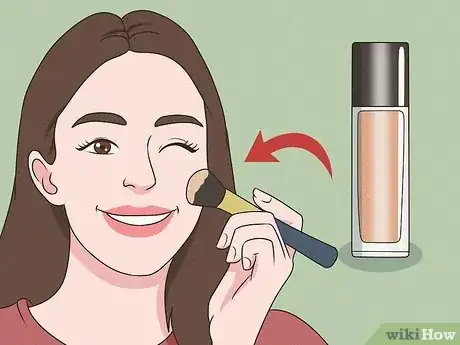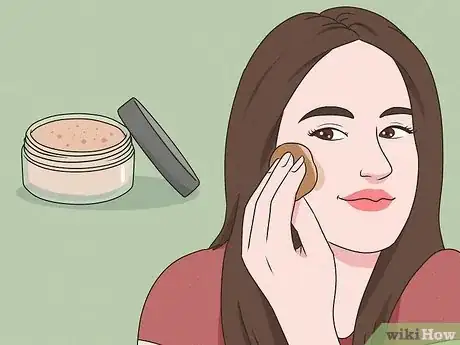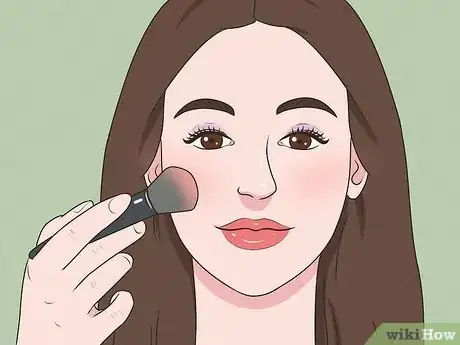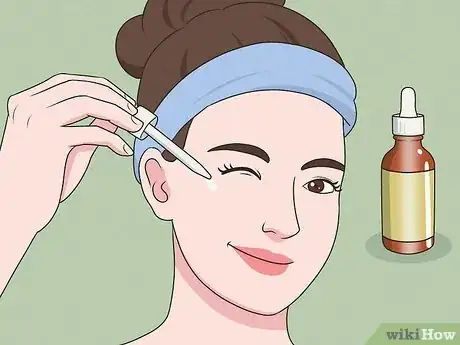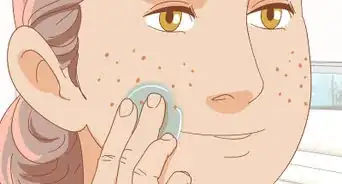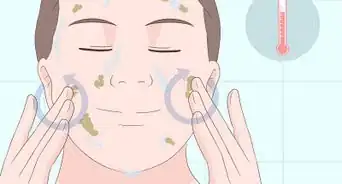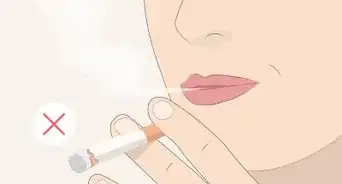This article was co-authored by Aanand Geria, MD and by wikiHow staff writer, Sophia Latorre. Dr. Aanand Geria is a board certified dermatologist, a clinical instructor at Mt. Sinai, and the owner of Geria Dermatology based in Rutherford, New Jersey. Dr. Geria's work has been featured in Allure, The Zoe Report, NewBeauty, and Fashionista, and he has peer-reviewed work for the Journal of Drugs in Dermatology, Cutis, and Seminars in Cutaneous Medicine and Surgery. He holds a BS from the Penn State University and an MD from Rutgers New Jersey Medical School. Dr. Geria then finished an internship at Lehigh Valley Health Network and a dermatology residency at the Howard University College of Medicine.
There are 11 references cited in this article, which can be found at the bottom of the page.
This article has been viewed 58,498 times.
Ready to get flawless-looking skin? We’re here to help you cover your dark spots and even out your skin tone for an Insta-worthy look. Whether you’re dealing with acne scars or sun damage, it’s easy to cover up those spots without your makeup looking heavy or cakey. Grab a mirror and get ready to glow!
Things You Should Know
- Start with clean, moisturized, primed skin for the perfect canvas.
- Apply a peach-toned color-correcting concealer to your dark spots.
- Add a light layer of foundation that matches your skin tone for a flawless face.
- Finish the rest of your makeup and set everything with translucent powder. Voila!
Steps
What Should I Avoid When Caring For The Skin On My Face?
Expert Q&A
-
QuestionHow can I cover dark spots that are on my face?
 Aanand Geria, MDDr. Aanand Geria is a board certified dermatologist, a clinical instructor at Mt. Sinai, and the owner of Geria Dermatology based in Rutherford, New Jersey. Dr. Geria's work has been featured in Allure, The Zoe Report, NewBeauty, and Fashionista, and he has peer-reviewed work for the Journal of Drugs in Dermatology, Cutis, and Seminars in Cutaneous Medicine and Surgery. He holds a BS from the Penn State University and an MD from Rutgers New Jersey Medical School. Dr. Geria then finished an internship at Lehigh Valley Health Network and a dermatology residency at the Howard University College of Medicine.
Aanand Geria, MDDr. Aanand Geria is a board certified dermatologist, a clinical instructor at Mt. Sinai, and the owner of Geria Dermatology based in Rutherford, New Jersey. Dr. Geria's work has been featured in Allure, The Zoe Report, NewBeauty, and Fashionista, and he has peer-reviewed work for the Journal of Drugs in Dermatology, Cutis, and Seminars in Cutaneous Medicine and Surgery. He holds a BS from the Penn State University and an MD from Rutgers New Jersey Medical School. Dr. Geria then finished an internship at Lehigh Valley Health Network and a dermatology residency at the Howard University College of Medicine.
Board Certified Dermatologist One of the best things you can try is applying a lightening cream called hydroquinone to the dark spots. You can get it over-the-counter or as a prescription.
One of the best things you can try is applying a lightening cream called hydroquinone to the dark spots. You can get it over-the-counter or as a prescription.
Warnings
- Although dark spots are typically nothing to worry about, it’s best to see your doctor when you first notice dark spots on your skin. They can make sure the dark spots aren’t something serious that needs medical treatment. For instance, some skin cancers cause dark spots, which aren’t the same as acne or sun spots.⧼thumbs_response⧽
References
- ↑ https://www.urbancompany.com/blog/beauty/steps-before-applying-makeup/
- ↑ https://fashionista.com/2016/03/best-color-correctors-makeup
- ↑ https://weheartthis.com/color-correcting-concealer/
- ↑ https://www.realsimple.com/beauty-fashion/makeup/makeup-face/how-to-apply-foundation
- ↑ https://www.realsimple.com/beauty-fashion/makeup/foundation-or-concealer-first
- ↑ https://stylecaster.com/beauty/how-to-set-your-makeup-without-it-looking-cakey/
- ↑ https://katiecouric.com/lifestyle/beauty/correct-makeup-order-application/
- ↑ Aanand Geria, MD. Board Certified Dermatologist. Expert Interview. 8 July 2020.
- ↑ https://www.aad.org/public/skin-hair-nails/skin-care/skin-of-color
- ↑ https://www.medicalnewstoday.com/articles/321362.php
- ↑ Aanand Geria, MD. Board Certified Dermatologist. Expert Interview. 8 July 2020.
- ↑ Aanand Geria, MD. Board Certified Dermatologist. Expert Interview. 8 July 2020.
- ↑ https://www.aad.org/public/skin-hair-nails/skin-care/skin-of-color
- ↑ https://www.marieclaire.com/beauty/news/g4085/zit-hiding-hairstyles/
